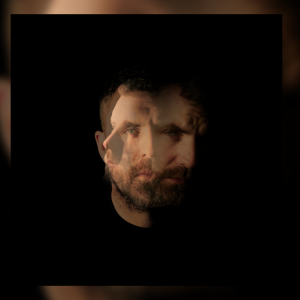For Mick Flannery, storytelling has been an integral part of his creative output since the release of his debut album ‘Evening Train’ in 2007. Having just premiered a stage adaption of this record in his home town of Cork, Flannery returns with a self-titled sixth album, detailing the oft misguided search for meaning in the chaotic and at times dysfunctional life of a musician.
Wasteland is a striking opener, showcasing the immense power of Flannery’s vocal in ways his emotive folk style does not necessarily always platform. In shifting mood from the subtle menace of the spoken-word inspired verses to the uplifting orchestral chorus, Mick Flannery deftly communicates the inherently complex construction of ego, “I wanna be remembered as a good father who did his best, I wanna be remembered as someone who was fun to be around” he pleads, before bookending that brief moment of vulnerability “I wanna be remembered as the greatest who ever set foot in the ring, the greatest ever.”
Though not a concept album, iterations of this character return throughout the record offering us various musings on the trappings of fame. Despite being seeped in nostalgia and boasting a singalong chorus, the quiet desperation in Star to Star is palpable as the protagonist fears a loss of social status “I wish I lived like this forever […] you get in that rut and you set yourself up for the big come down”
Now in his thirties, Mick Flannery has a wealth of life experience to draw upon during his songwriting, suggesting a hybrid of real life inspiration and fictional dramatization works best. “Obviously, I don’t equate to the levels of conflict I’m describing in the songs. I know the spectrum because of how reserved I am, and how – in my years of being in the music industry, and through varying levels of being noticed – it can change your life a bit”
This self-awareness shines through on I’ve Been Right, marrying the theme of ego with the fiery social commentary of Flannery’s 2016 album ‘I Own You’. In a body of work that could easily choose to remain apolitical, this cinematic offering questions those born into privilege who continue to perpetuate inequities through their refusal to reflect upon a system rigged in their favor “who taught you right from wrong? who taught you white from not? Any hope and dream, not the same for all it seems”. It never feels forced or performative as Flannery’s sincerity is evident.
Though lyrically exploring themes of loneliness and longing, lead single Come Find Me is a gentle change of pace with its airy plucked guitar and stirring violin line. In pairing with Californian duo ESCQ, it successfully incorporates both their pop-oriented songwriting skills and Flannery’s more traditional singer-songwriter style. The soaring pop sensibility of love song Fool also proves an endearing highlight of the album.
Given Flannery’s success the last number of years, it seems only fitting this album be self-titled. His signature narrative lyricism remains, bolstered by playful characterisation, but there is also a flexibility and ease that comes with spending over a decade in the industry.
Here’s hoping for a decade more.

